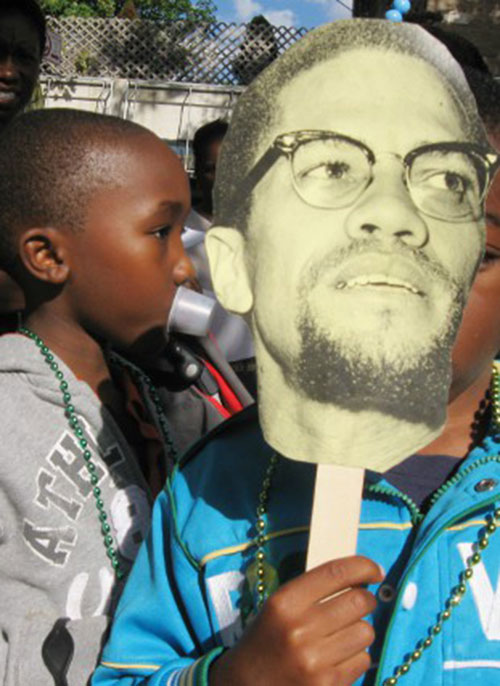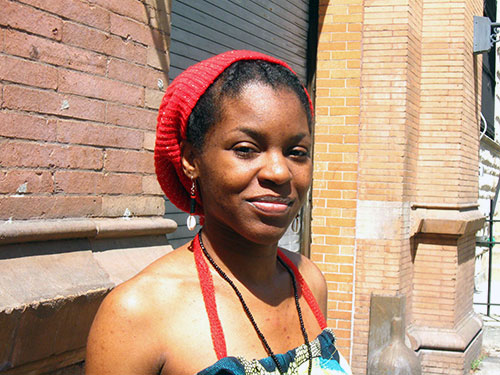Next month, Brooklyn-based Aisha Cousins begins her four-month tenure as one of three Artists-in-Residence for the non-profit organization The Laundromat Project. As part of the initiative’s Create Change Program, Cousins will temporarily transform a Brooklyn laundromat into a community art center. Marmy’s Laundromat, situated on the corner of Malcom X Boulevard and Putnam Avenue in Bed-Stuy, will continue as a fully-functioning laundromat, while doubling as the base for Cousin’s community-based practice. The residency will culminate with a site-specific, socially-minded work that will commemorate the life of the human rights activist Malcolm X.
Before next November, Cousins will draft and execute a “performance score”—an open-ended set of instructions for a live art project. Her next score, called Mapping Soulville, draws inspiration from the book Soul City, written by the American writer and critic Touré. The setting for this allegorical tale is an unknown town where black culture, especially music, is exalted. Cousins will likewise entreat Bed-Stuy residents to envision a neighborhood in which an icon is celebrated. Together, Cousins and the community will select new names for the streets that bisect Malcolm X Boulevard, having reflected on the events and significance of Malcolm X’s life. Cousins will then petition for the renaming of the streets, resulting in a peripatetic meditation and homage to the life of Malcolm Little.

Aisha Cousins. “BedStuy resident performing another Malcolm X inspired score from the SAY IT LOUD series,” Summer 2012. Courtesy the artist.
A powerful symbol for the Bed-Stuy community, Malcolm X is the namesake for both the school El Hajj Malik El Shabazz Elementary and Malcolm X Boulevard in Bed-Stuy. The different names denote distinct periods of his evolution, as it was marked by many monikers over his lifetime. Born Malcolm Little in Omaha, Nebraska in 1925, he became Detroit Red as a hustler in Boston, Malcolm X as a member of the Nation of Islam, and finally, El-Hajj Malik El-Shabazz following his pilgrimage to Mecca in April 1964. Icons are, by nature, flat, but the atrocities of racial unrest Malcolm X witnessed throughout the civil rights movement, the mistakes he made as a young man involved with crime and the humility he expressed for his transgressions give depth to this symbol. History is static, but the dynamic hindsight of Malcolm X illustrates that potent insight can be distilled from the most poisoned past.
Mapping Soulville endeavors to heighten a symbolic presence onto the streets of Bed-Stuy. Cousins explained, “It’s irresponsible for me as an artist to cut open old wounds and walk away.” Rather Cousins’s next project will open and allow participants to walk within a continuing conversation. The performance will attempt to expose and more importantly, refocus history, presenting a real-time exercise in community empowerment.
Aisha Cousins (born 1978, Boston) has exhibited her performance-based works at numerous institutions including the Museum Of Contemporary African Diasporan Arts, the Brooklyn Museum of Art, Houston’s Project Row Houses, and Kitchen. She will be a Create Change Artist-in-Residence from June 1 to October 19, 2013.






